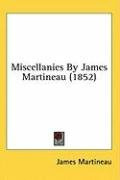miscellanies

Purchase of this book includes free trial access to www.million-books.com where you can read more than a million books for free. This is an OCR edition with typos. Excerpt from book: CHURCH AND STATE. [From the Prospective Review for May, 1845.] The questions which engage the attention of speculative men often appear to have little connection with the actual affairs of their time: and are regarded, both by those who discuss them and by those who despise them, as mere ideal things, touching at no point the realities amid which they appear. Yet this estimate, invariably made by contemporaries, is as invariably reversed by posterity. In the historical retrospect of any period, the relation between its Thought and Action becomes clear: and its philosophy appears, no less than its poetry, its art, or even its polity, distinctly expressive of its real internal life. Nay, the very literature which most affects universality is often most deeply stamped vith the characteristics of age and race. The genius of a peculiar civilization, slowly and obscurely rising, appears to reach its culminating intensity in its philosophy. Standing at that point of its culture, we occupy the precise meridian from which it looked forth on the universe. What it missed and what it saw, what it loved and what it hated, all its conceptions of truth and all its aspirations after good, are collected there, and so constructed into a systematic whole, as to be apprehensible at a single view. There is nothing more absolutely Hellenic than the Dialogues of Plato, or more distinctively mediaeval than the writings of Thomas Aquinas: the England of the Reformation perfected itself in Locke, and the France of the Revolution is reflected in Diderot. He who would thoroughly appreciate the actuating spirit of any period must study, not only the debates of its Senates, but the discussions of its Schools. The Ideal of a Christian Church considered in Comparison with existing Practice. By Rev. W. ...
Info about the book
Author:
Series:
Unknown
ISBN:
0548941955
Rating:
5/5 (4)Your rating:
0/5
Languge:
English
Users who have this book
Users who want this book
What readers are saying
What do you think? Write your own comment on this book!
write a commentif you like miscellanies try:
Other books by this author
Do you want to read a book that interests you? It’s EASY!
Create an account and send a request for reading to other users on the Webpage of the book!


